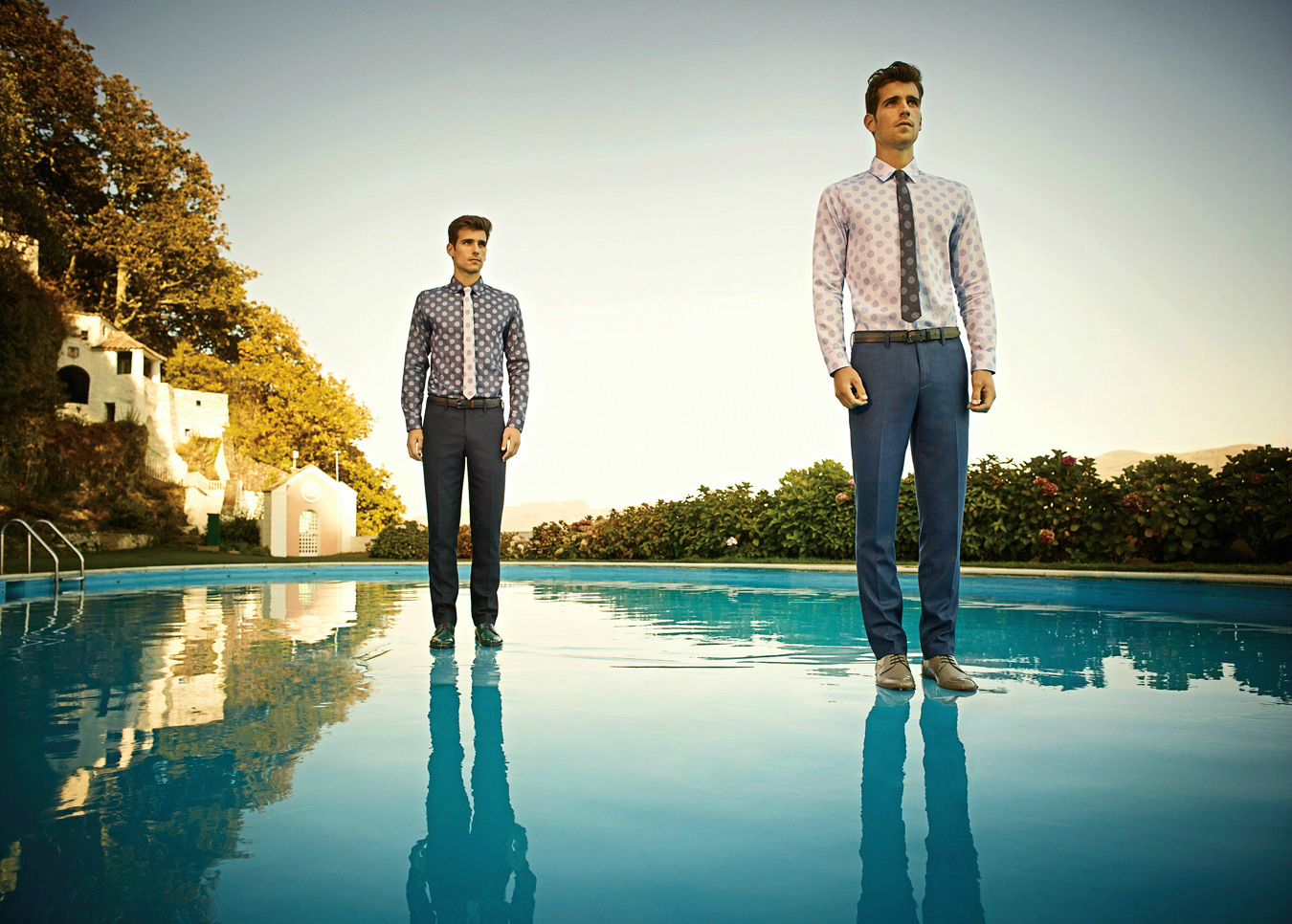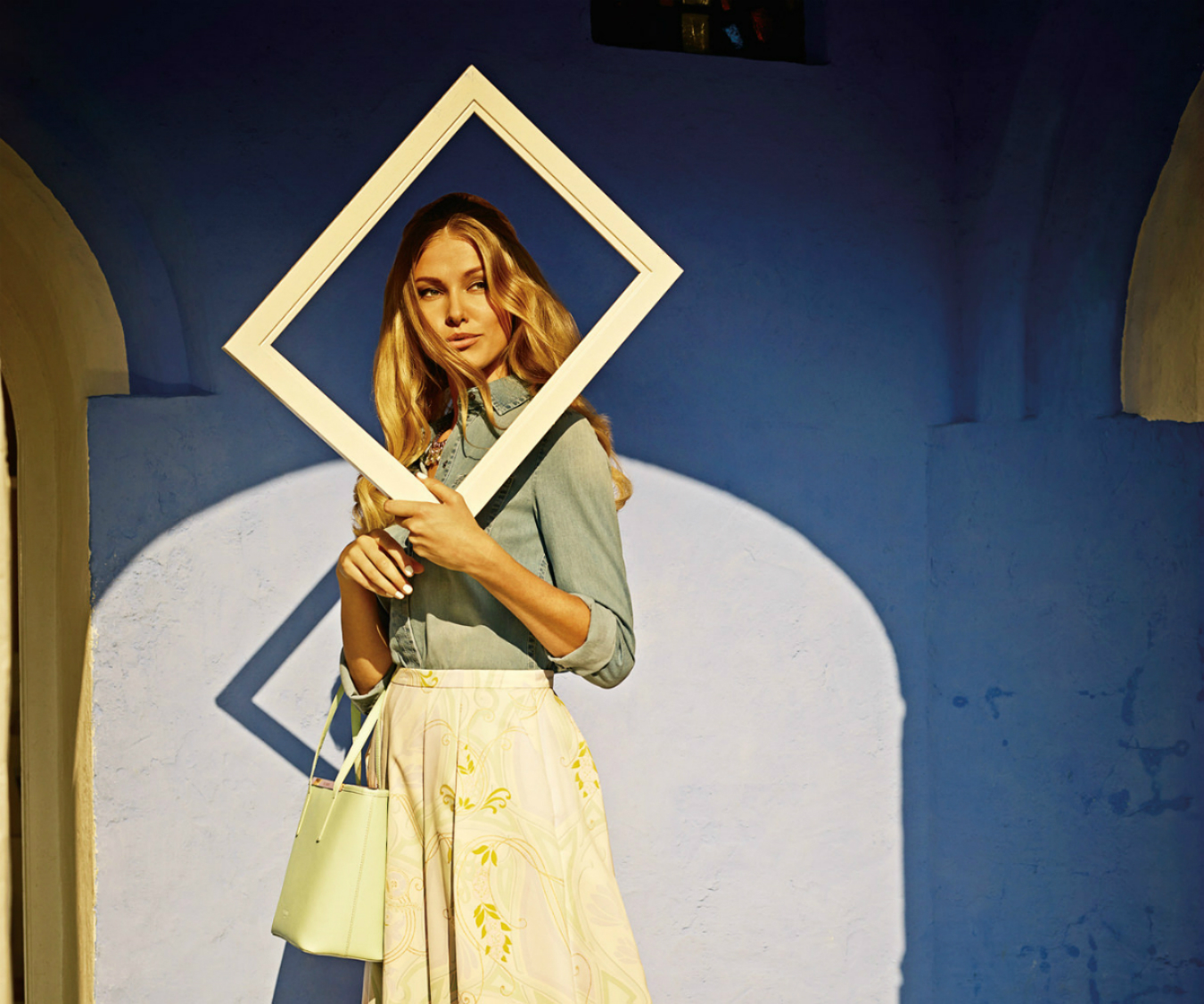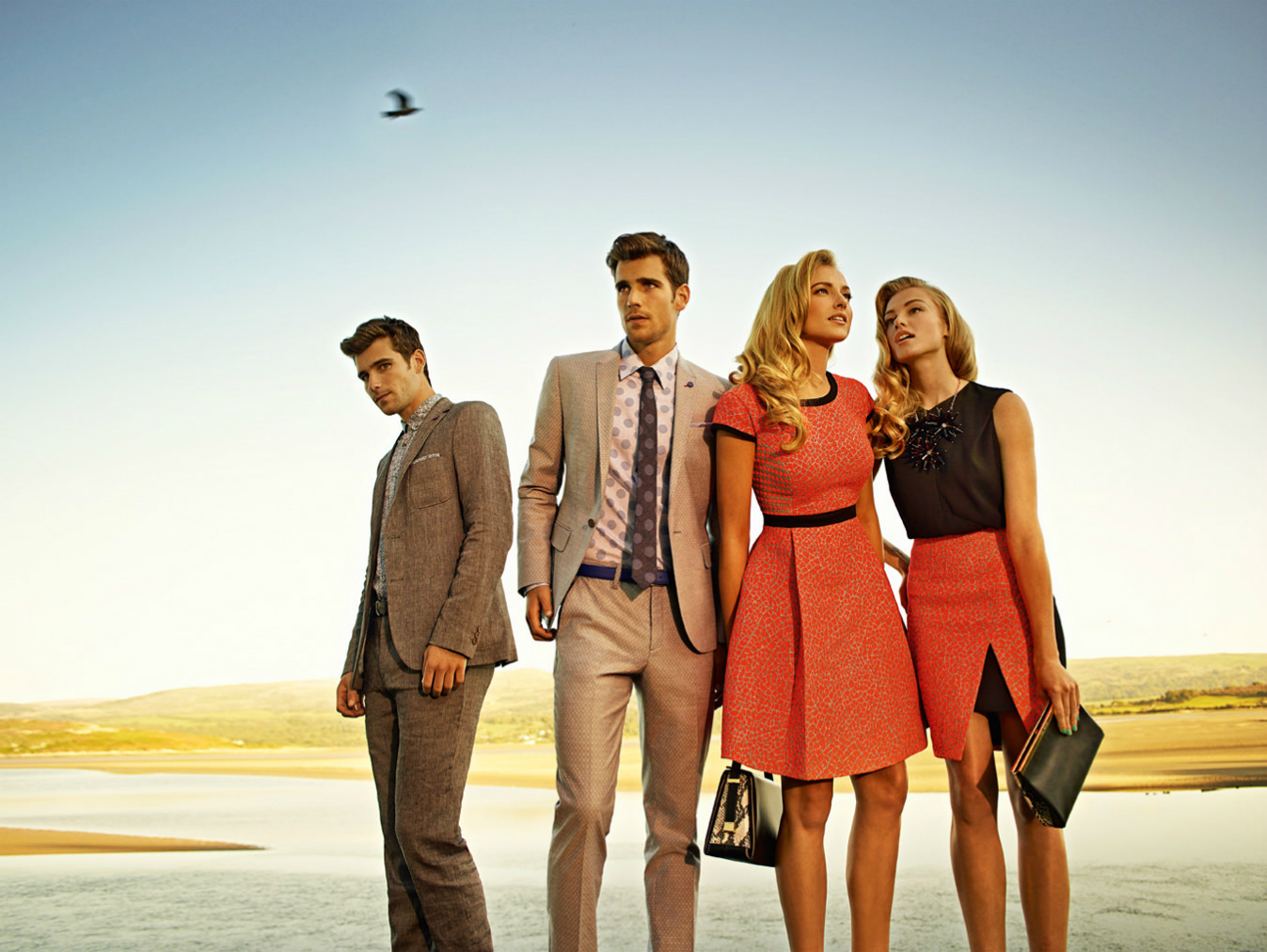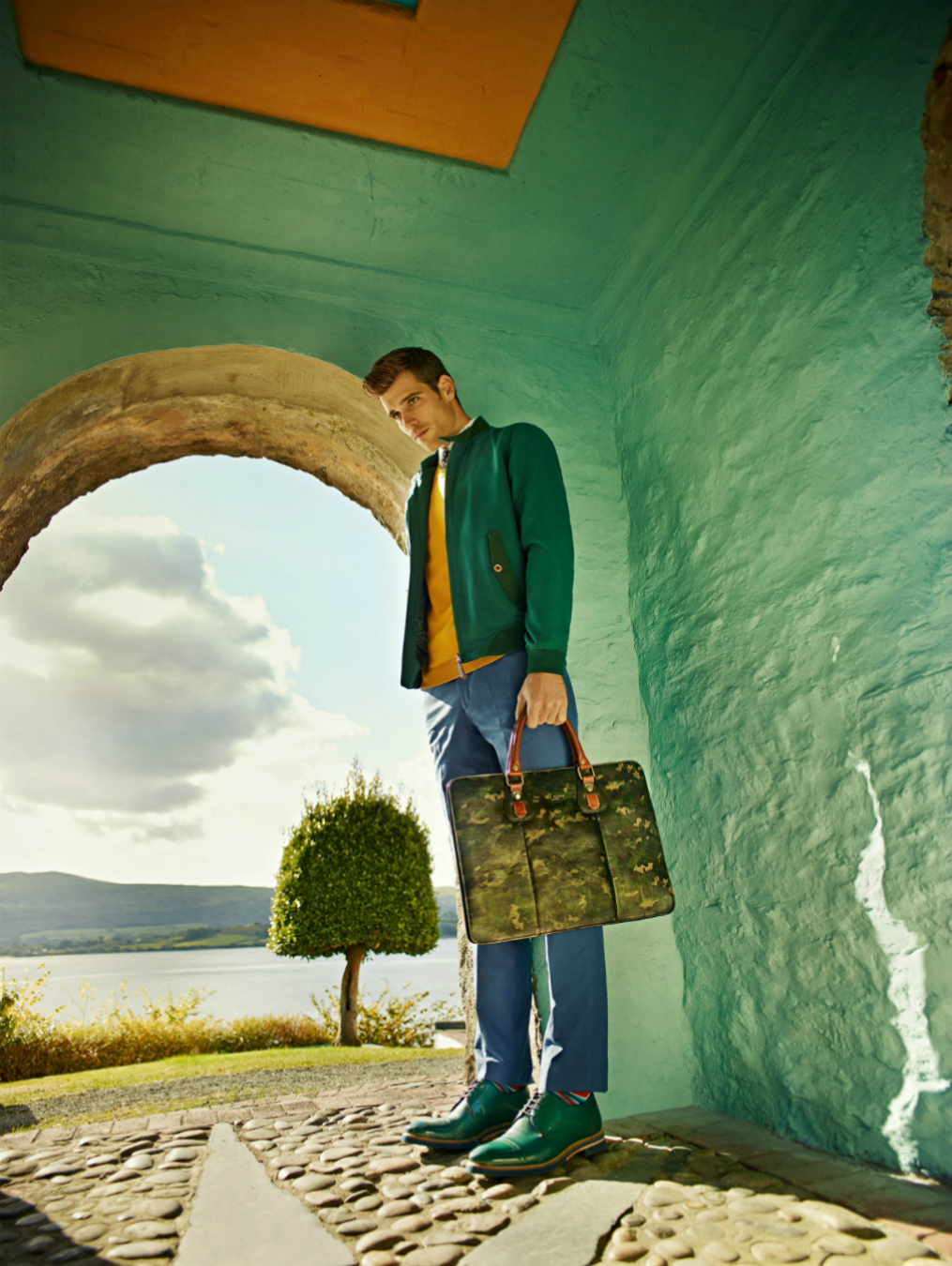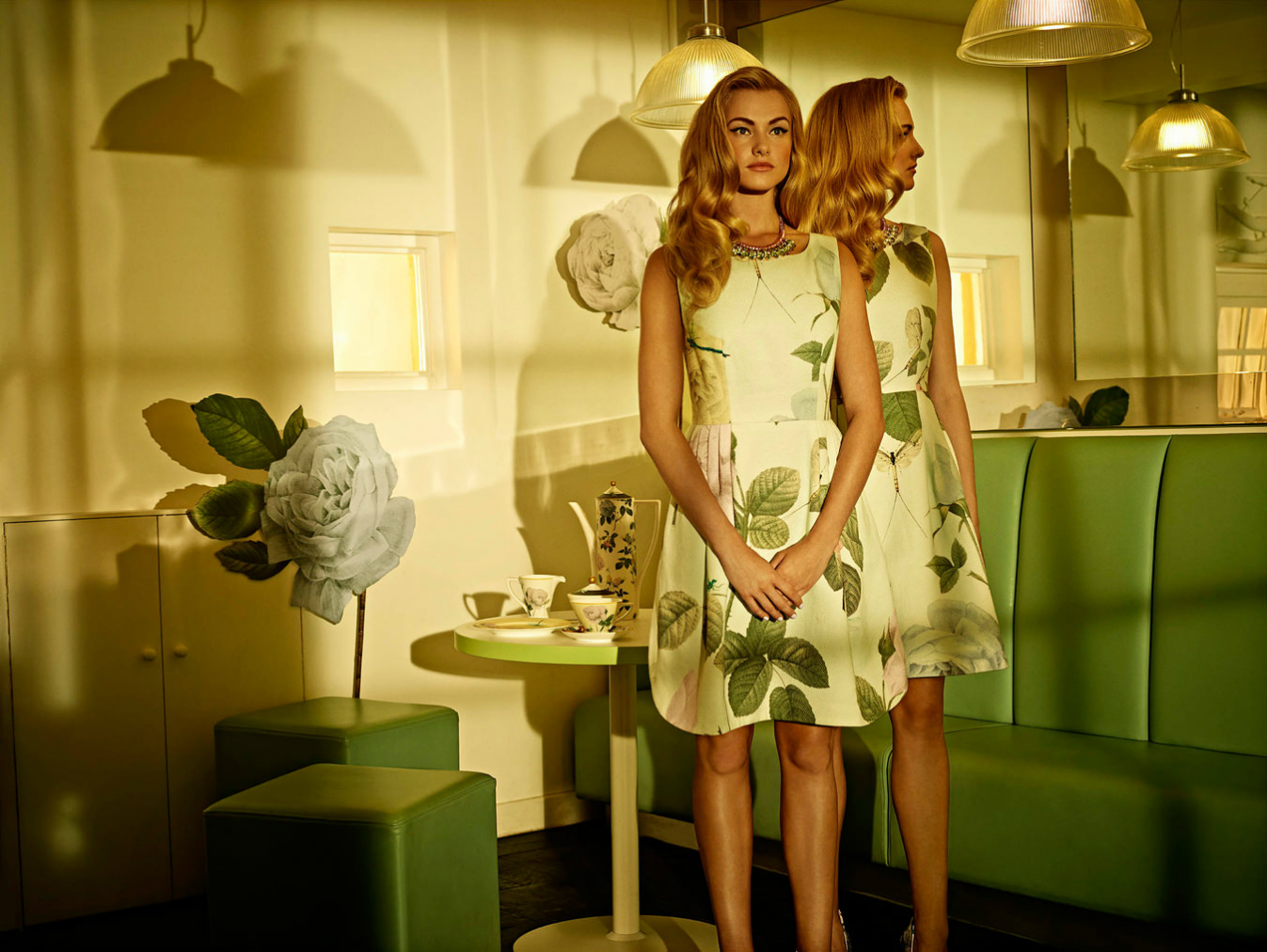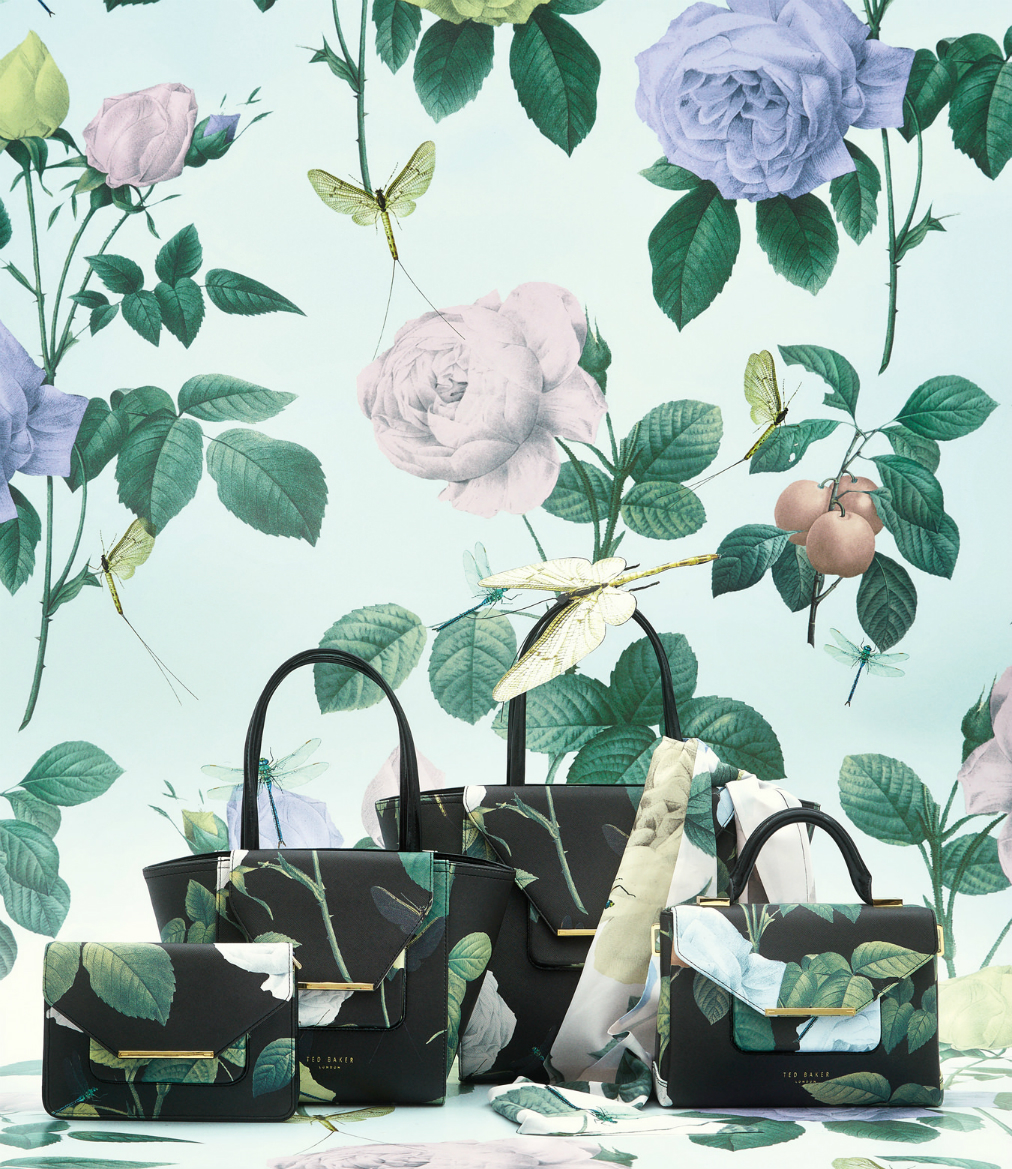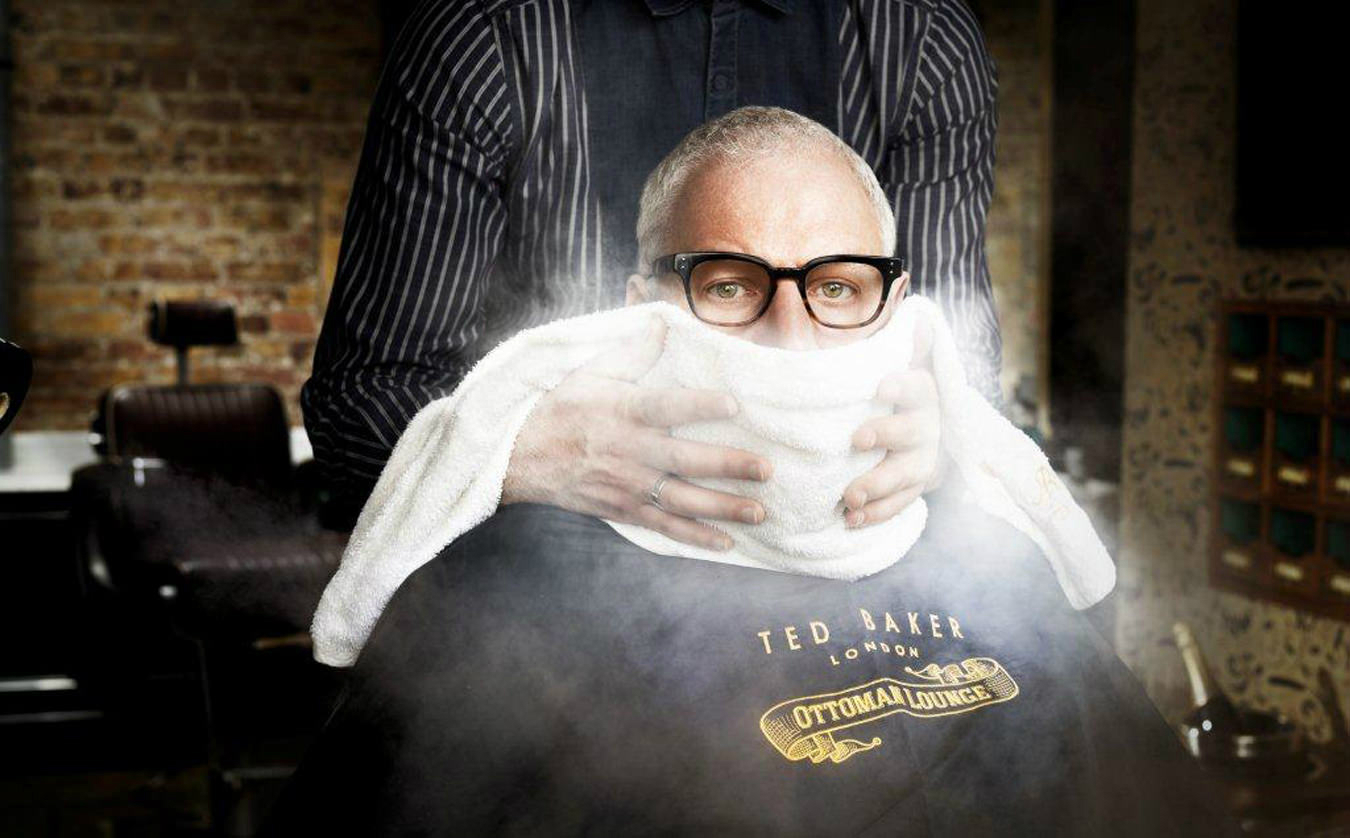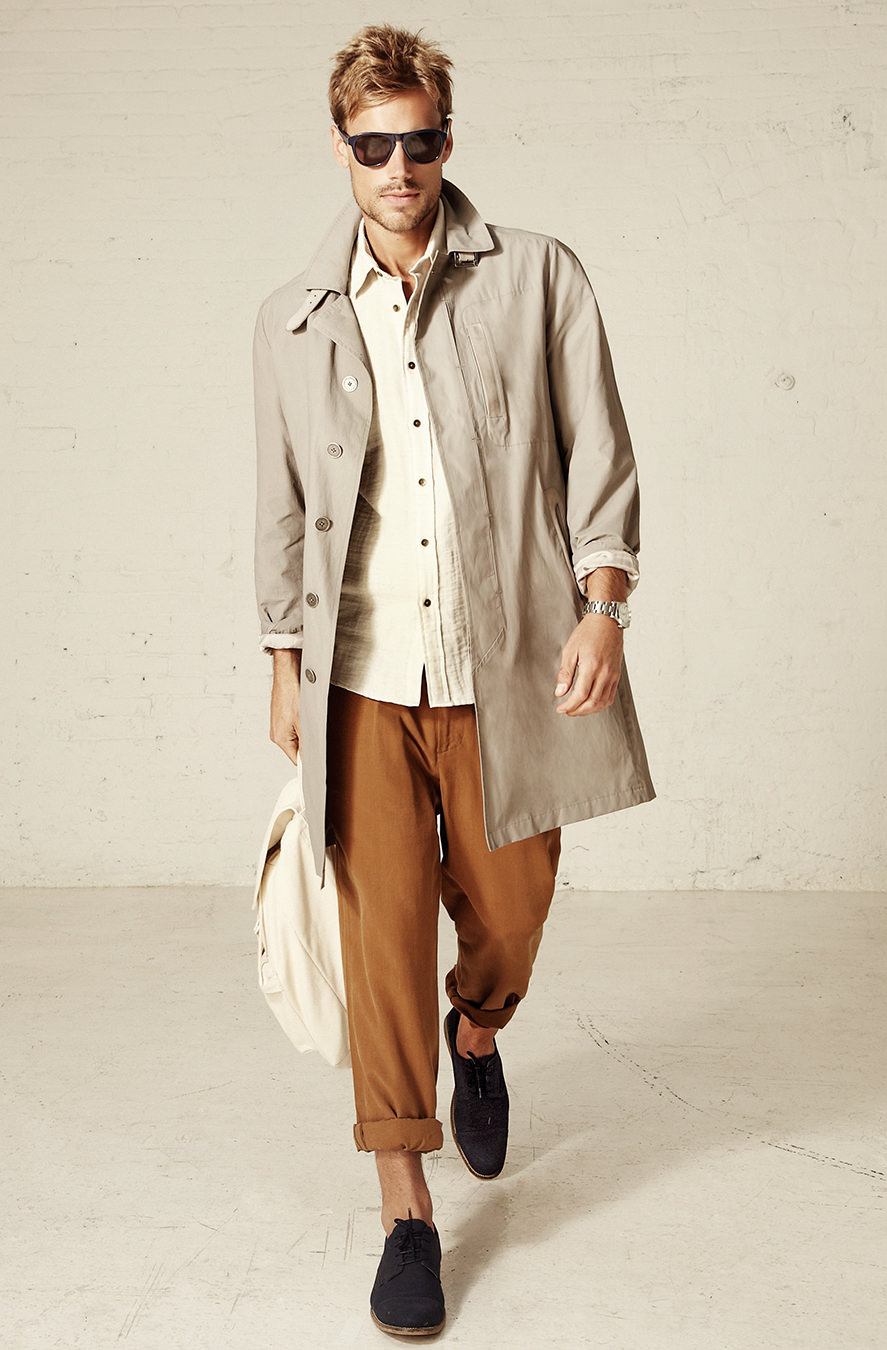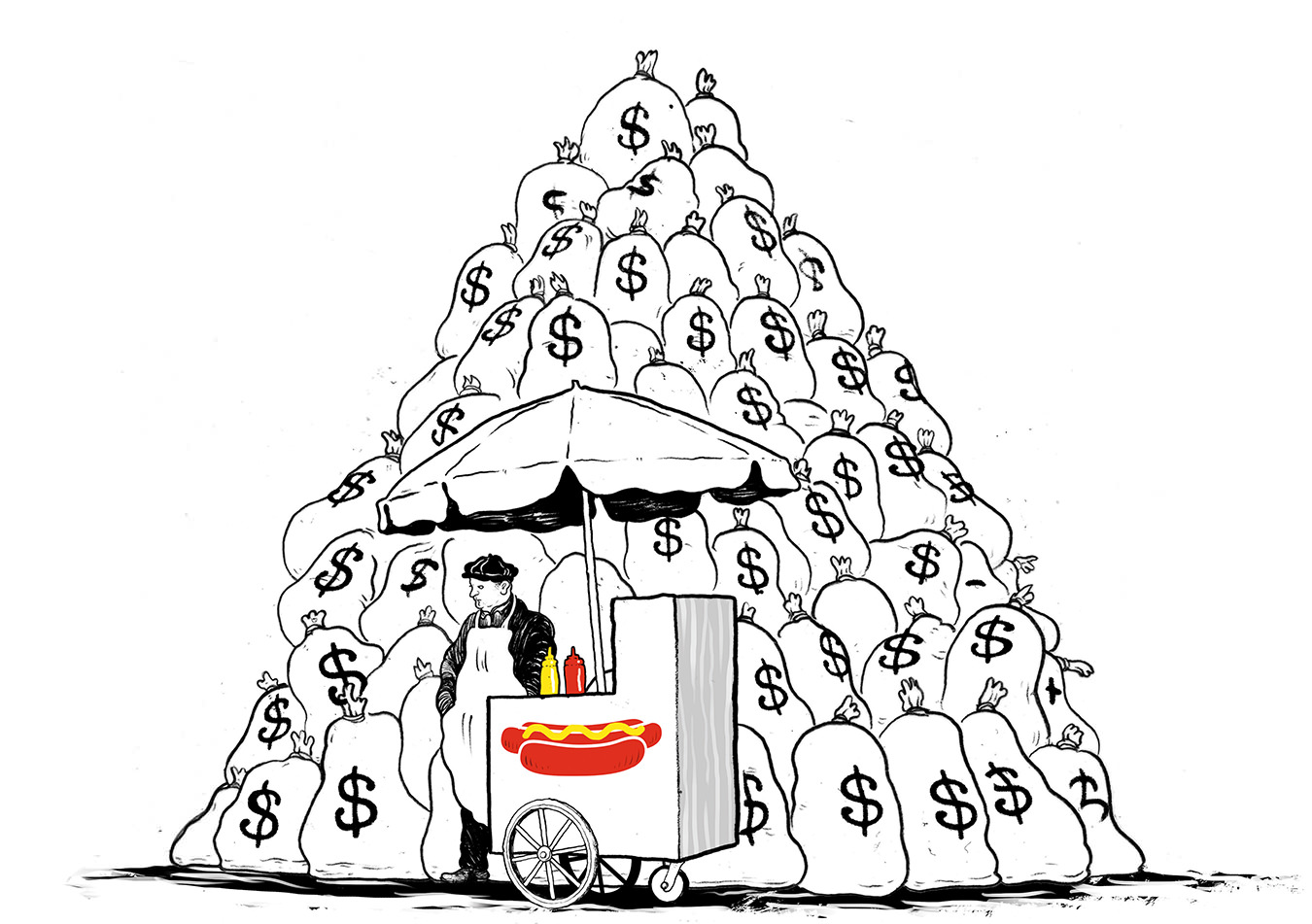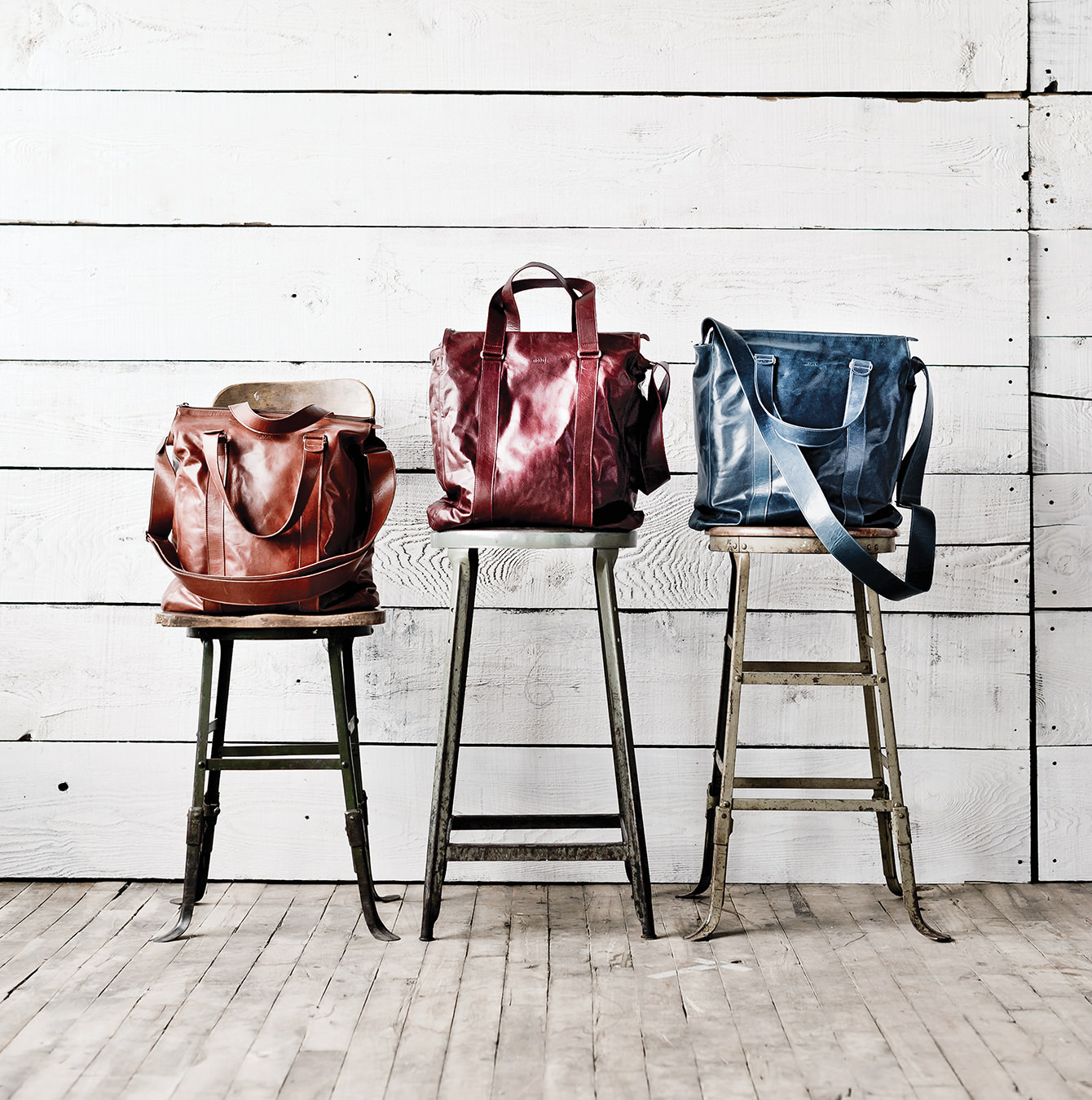British Label Ted Baker
A stitch different.
Many fashion brands are named after a designer, founder, or some combination of the two. The exceptions to this are few and far between.
Surprisingly, Ted Baker is one of these exceptions. In fact, the British men’s and women’s contemporary label known for quality-driven pieces with flattering silhouettes, statement prints, and big personality, was founded in 1988 by a man named Ray Kelvin. Kelvin is a charismatic figure who loves colourful spaces and is known for hugging his staff—and yet is also camera shy. Ted Baker is a fictitious character. “A friend of mine went overseas, and as Richard, he didn’t do so well, so he changed his name to Ted Baker and people started listening to him,” Kelvin says, recalling how he came up with the name. “But I also just wanted the company to sound generic and cosmopolitan.”
With a background supplying private-label clothing to large, fast-fashion retailers, Kelvin knew that he wanted his brand to be different. “My process from the beginning was to design clothes that everybody could wear,” he explains from the company’s large, vibrant headquarters Camden, North London. “If you’re wearing a designer shirt and charging £800 [$1,460 Canadian] for it, that’s easy. To make a shirt that looks like £800 and sell it for £80 or £90 [$145 or $165] is more challenging.” Kelvin has gladly accepted the challenge, turning Ted Baker from a brand known primarily for its tailored men’s shirts into one with over 1,000 styles, from gowns, party dresses, and suits to swimwear, footwear, and jewellery. Both the women’s and men’s collections are made up of a main line and a more premium eveningwear offering (“Langley” for women, “Global” for men), featuring higher-quality fabrics such as embellished jacquard, silk, and lace. “We’re affordable luxury, although I don’t really like the word luxury,” says Kelvin. “Luxury is selling kudos. Do you buy the brand or do you buy the product? Heritage and craftsmanship mean more to me than luxury; we’re about the best fabrications and the best stitch.”
When the company went public in 1997, it was as Ted Baker PLC, trading under the name No Ordinary Designer Label Limited. “I don’t want anything to be ordinary; I don’t want this to be an ordinary business,” he says. And his approach has paid off. “People often say they love Ted Baker,” says Kelvin. “They don’t say they like it—they love it.”
But that alone isn’t enough for Kelvin. “I have only one strategy,” he says, “and that is to do it better. If you’ve got a winning shirt, win even more people next time by putting an even better button on it. I don’t believe in ‘if it’s not broken, don’t fix it’—if you can do it better, then do it, even if it’s selling well. It’s just common sense.”
To say Kelvin is heavily involved in the business would be an understatement. From conceptual sketches and trend reports to sourcing fabrics and meticulously analyzing and updating bestselling styles, he’s there. Every week, he reviews each and every item to understand what is and isn’t working and what needs to be changed. “Seventy per cent [of our business] is continuous and standard to what we do, 20 per cent is new, and 10 per cent is for us to have a bit of fun and go mad,” he rationalizes. “We know what works for us, but I’m also highly critical, so I’m not always going to say we’re the best. If you’re any good, you’re always going to think that other people are doing things better.”
This may be so, but one thing you won’t find Kelvin doing is actually looking outside his brand—at least not publicly. Ted Baker’s tongue-in-cheek aesthetic and use of print have garnered it comparisons with another Brit designer, Paul Smith, but Kelvin remains mute on the topic of competitors. “My mother always said to me: talk about your business and don’t talk about anybody else’s. People used to come into the shop and say, ‘Do you know where Marks & Spencer is?’ and my mother used to say, ‘This is Ted Baker. I’ve never heard of Marks & Spencer.’”
Today, Ted Baker is available in fashionable cities worldwide, from Beijing to Boston and Toronto to Tokyo, stocked in highly regarded department stores such as Galeries Lafayette in Paris, Selfridges in London, and Takashimaya in Singapore. Kelvin believes this is because Ted Baker has a distinct customer, at least in terms of attitude. “It’s for people who care about fashion, who care about quality,” he says. “They like colour, they enjoy being individualistic, and they’re discerning.

